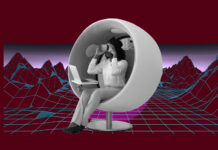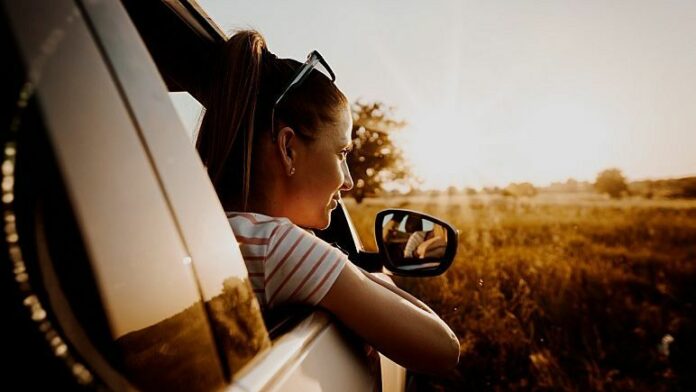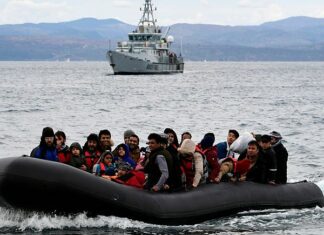If you are planning a road trip in Europe, it is better to read this article and learn more about some driving rules before starting this exciting trip. Laws that may surprise you.
In this report, we asked travel expert and co-founder of the Formula One Grand Prix and MotoGP motor racing races, Simon Medlesi, to tell us about the most unexpected European driving laws that people may not be aware of. The 9 laws that you read below are derived from these recommendations.
1- The child should not sit in the front seat of the car
If you have a child and you happen to be planning to drive in Europe, you should know that there are some restrictions in this regard. In most European countries, children must be at least 135 cm tall to be able to sit in the front seat. Of course, this is more strict in some other countries. For example, in Italy and Germany, the height is at least 150 cm.
Keep in mind that it’s not just height that needs to be considered. In a country like Spain, it doesn’t matter how tall you are, because you have to be at least 18 years old to be allowed to sit in the front seat of the car.
2- Do not confuse speed cameras with trash cans
No one likes to get a speeding ticket while on vacation. In this regard, Simon says: “Speed cameras are different in every European country. “In Italy, for example, these cameras can be large and bright orange, and although they may seem obvious, they can easily be mistaken for a mailbox or even a bright trash can on the side of the road.”
Looking for speed cameras that you might encounter before you start your trip can save you stress and even a heavy fine.
3- Have a spare pair of glasses
You might be surprised to hear that in France, Spain and Switzerland, people who wear glasses must always carry a second pair of glasses while driving.
Simon tells us: “There have been cases where the driver has been asked to show the police their second set of glasses, and if they don’t do so, they’ve paid an unwanted and unfortunately avoidable fine.”
4- Carry a fire extinguisher
In countries such as Belgium, Sweden, Denmark and Norway, having a fire extinguisher is always required in the car. Another unexpected thing you may be asked to do is to prove that you have wooden or plastic blocks that you can place behind the vehicle’s wheels if necessary to prevent the vehicle from rolling back unintentionally when stopped.
This is especially useful in Estonia because you will be fined if you do not have these blocks with you.
5- It is forbidden to drink water and eat snacks behind the wheel
Are you one of those people who have a habit of eating a quick snack or a small bite while driving? If the answer is yes, then we advise you not to travel to Cyprus because if you do, you may face serious consequences.
This country has completely prohibited drivers from eating and drinking while driving. This even includes drinking water and you may face a hefty fine for doing so.
6- Do not drive after drinking
We all know that we should not drive after drinking alcohol, but in different European countries the legal threshold of this issue is different because, for example, some countries emphasize that if you want to sit behind the wheel, you should not consume alcoholic beverages at all.
In Denmark, a person with a blood alcohol content of more than 20% will not be allowed to drive, and those who do will likely face a very heavy fine. In Poland, this threshold is stricter. So that any driver who has more than 200% of alcohol in his blood will face heavy penalties such as driving ban and even prison.
Simon tells us that Eastern European countries are generally very strict about alcohol consumption and don’t tolerate drink driving at all. Romania, the Czech Republic and Hungary all fine people with a blood alcohol level above zero.
Therefore, it is better to pay special attention to drinking alcohol and driving because this issue can become very troublesome for you.
7- Keep your car clean
In some countries, you may be fined for the condition of your car, says Simon. He adds that it’s not just broken lights, burned out bulbs, or a broken windshield wiper, but even a dirty car can get you in trouble.
In Bulgaria and Belarus it is illegal to drive a dirty car. It doesn’t matter if your license plate is dirty or the windows are dirty, you will be fined either way in these two countries. So if any of these two countries are on your sightseeing list, you should make sure your car is clean.
8- Do not use headphones while driving
You have probably heard a lot that instead of using a cell phone and talking to your friends while driving, you should use headphones; But wait, before you answer your friend’s phone, learn a little more about the European countries that are strict about this.
Some European countries have generally banned the use of wired or even wireless headphones while driving. In 2015, France banned the use of any headphones and any device that emits sound into people’s ears. If you commit such a violation in France, you may face a heavy fine and a significant negative point on your license.
9- Check small animals under your car before driving
Whether you’re going on a short trip or even a longer one, Danish law says that a driver must do a thorough inspection of their vehicle before setting off to ensure that your vehicle is safe.
Although this one doesn’t seem so strange, the other rule will probably surprise you. In Denmark, it is mandatory for the driver to check under his car before driving to make sure that there are no small animals or children hiding under the car.
As you have seen, driving in Europe has certain difficulties and lack of knowledge of some rules will make your journey bittersweet and you will have to pay a lot of money for traffic fines. So if you want to avoid these fines, be sure to check the driving laws and restrictions of your destination country before starting your trip.

























































